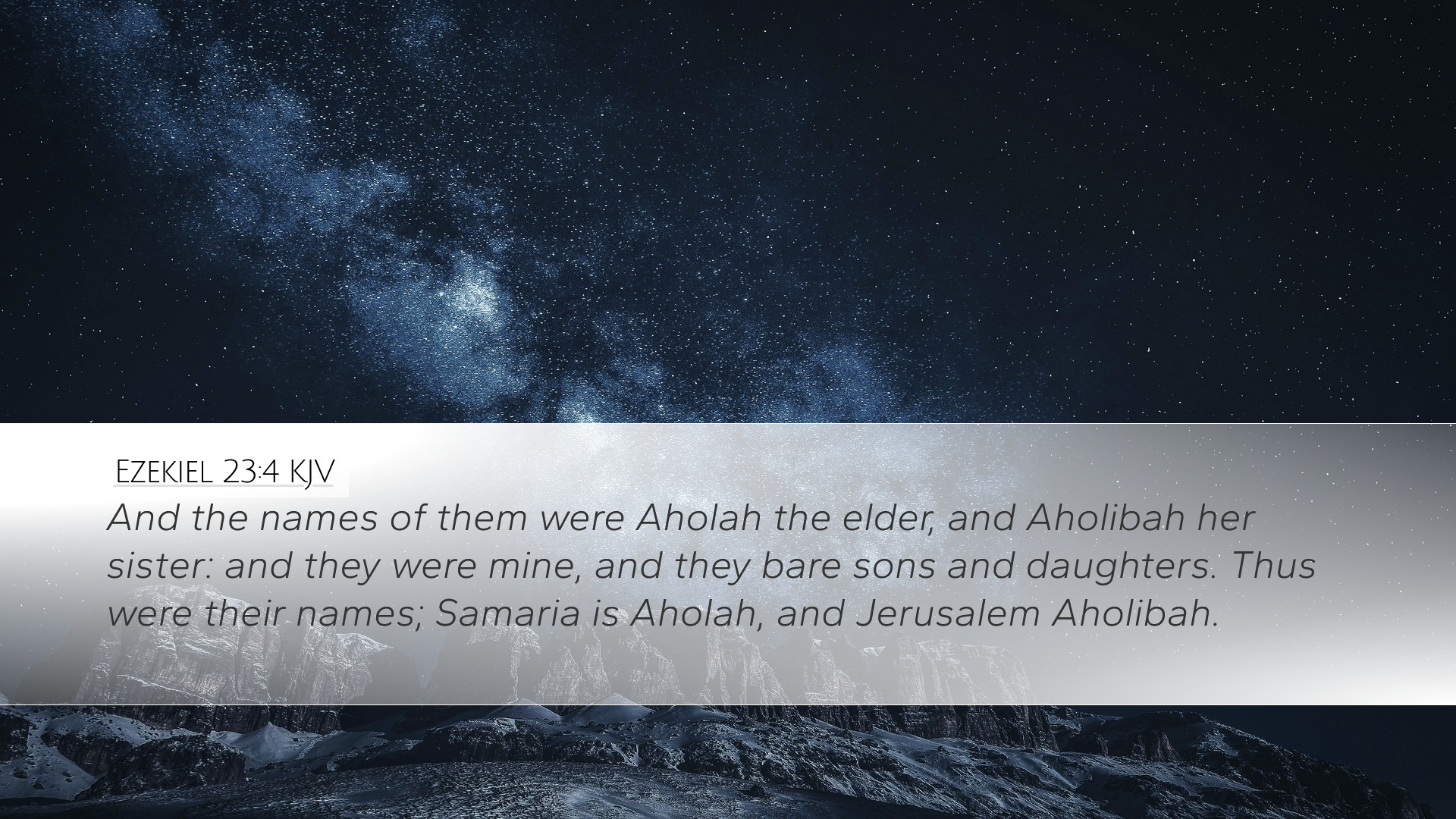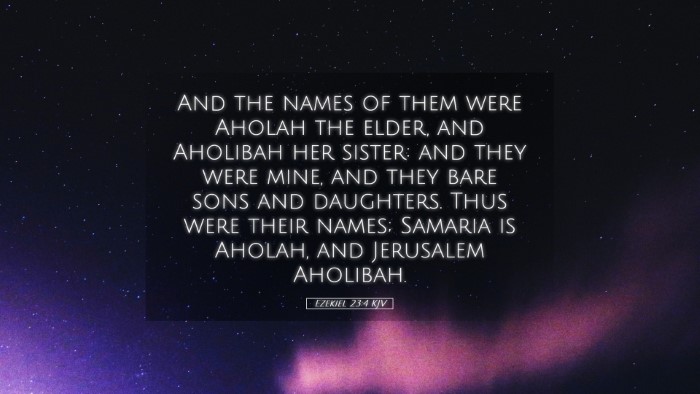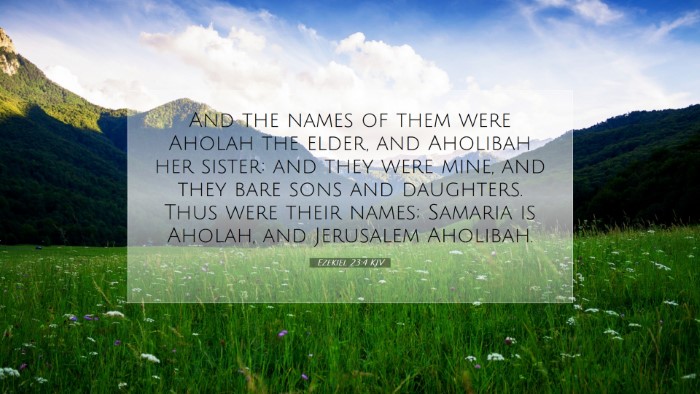Bible Commentary on Ezekiel 23:4
Verse: Ezekiel 23:4 states, "And the names of them were Aholah the elder, and Aholibah her sister. And they were mine, and bare sons and daughters. Thus were their names; Samaria is Aholah, and Jerusalem Aholibah."
Introduction
The verse Ezekiel 23:4 serves as a critical introduction to an allegorical narrative within the larger prophetic book of Ezekiel. This passage metaphorically portrays the two kingdoms of Israel: the Northern Kingdom (Samaria) and the Southern Kingdom (Judah). The allegorical language offers deep insights that are important for pastors, students, theologians, and scholars, enabling a more profound understanding of God's relationship with His people, fidelity, and idolatry.
Contextual Analysis
To appreciate this verse fully, one must consider the socio-political and religious context of Israel during Ezekiel's prophetic ministry. The date of this prophecy falls during a time of great upheaval, as Judah faced impending judgment because of its infidelity to Yahweh. Ezekiel's unique perspective, coming from exile, provides a fresh lens for understanding the consequences of both personal and collective apostasy.
Allegorical Representation
Matthew Henry notes that Aholah represents Samaria, embodying the kingdom's unfaithfulness and idolatrous practices. Likewise, Aholibah symbolizes Jerusalem, representing Judah's treacherous path. This personification becomes a powerful illustration of the spiritual adultery committed by Israel against their covenant-keeping God.
The Significance of Names
In ancient Hebrew culture, names held tremendous significance. The names "Aholah" (meaning "her tent") and "Aholibah" ("my tent is in her") suggest the close relationship the Lord had with His people, which they violated through their infidelity. Adam Clarke elaborates on this theme, highlighting that these names indicate how both nations were set apart as God's chosen but strayed toward pagan influences.
Theological Implications
- Covenant Faithfulness: This verse accentuates the seriousness of Israel's covenant relationship with God. Their unfaithfulness is likened to that of an adulterous wife, a recurring biblical theme.
- Divine Judgment: The narrative warns of impending judgment, showing the consequences of unfaithfulness. Albert Barnes articulates the idea that God's wrath is aroused due to the blatant idolatry that characterized both the Northern and Southern kingdoms.
- Hope for Restoration: Despite the grim portrayal of Aholah and Aholibah, there is an underlying hope for restoration within God’s plan. This theme resonates throughout the book of Ezekiel, emphasizing God's desire to reclaim His people.
Lessons for Modern Application
For pastors and biblical scholars, Ezekiel 23:4 offers rich contemporary applications:
- Spiritual Vigilance: Believers must remain vigilant against spiritual infidelity. The passage calls to attention the allure of worldly influences that can lead one away from a faithful relationship with God.
- Understanding God’s Heart: The allegorical representation emphasizes God’s deep hurt over His people's betrayal, providing an insight into the emotional landscape of God’s love and righteousness.
- Call to Holiness: This scripture serves as a reminder of the high calling to live in holiness and obedience, reflecting the character of God amidst a culture of moral ambivalence.
Conclusion
Ezekiel 23:4 stands as a vital text within the prophetic literature, urging readers to reflect upon the themes of fidelity, covenant relationship, and the consequences of spiritual infidelity. By drawing upon the insights of various biblical commentators, we can better grasp the depth of meaning encapsulated in this verse. It becomes not just a historical reflection of two ancient kingdoms, but also a timeless reminder of the importance of remaining faithful to God in every aspect of life.


